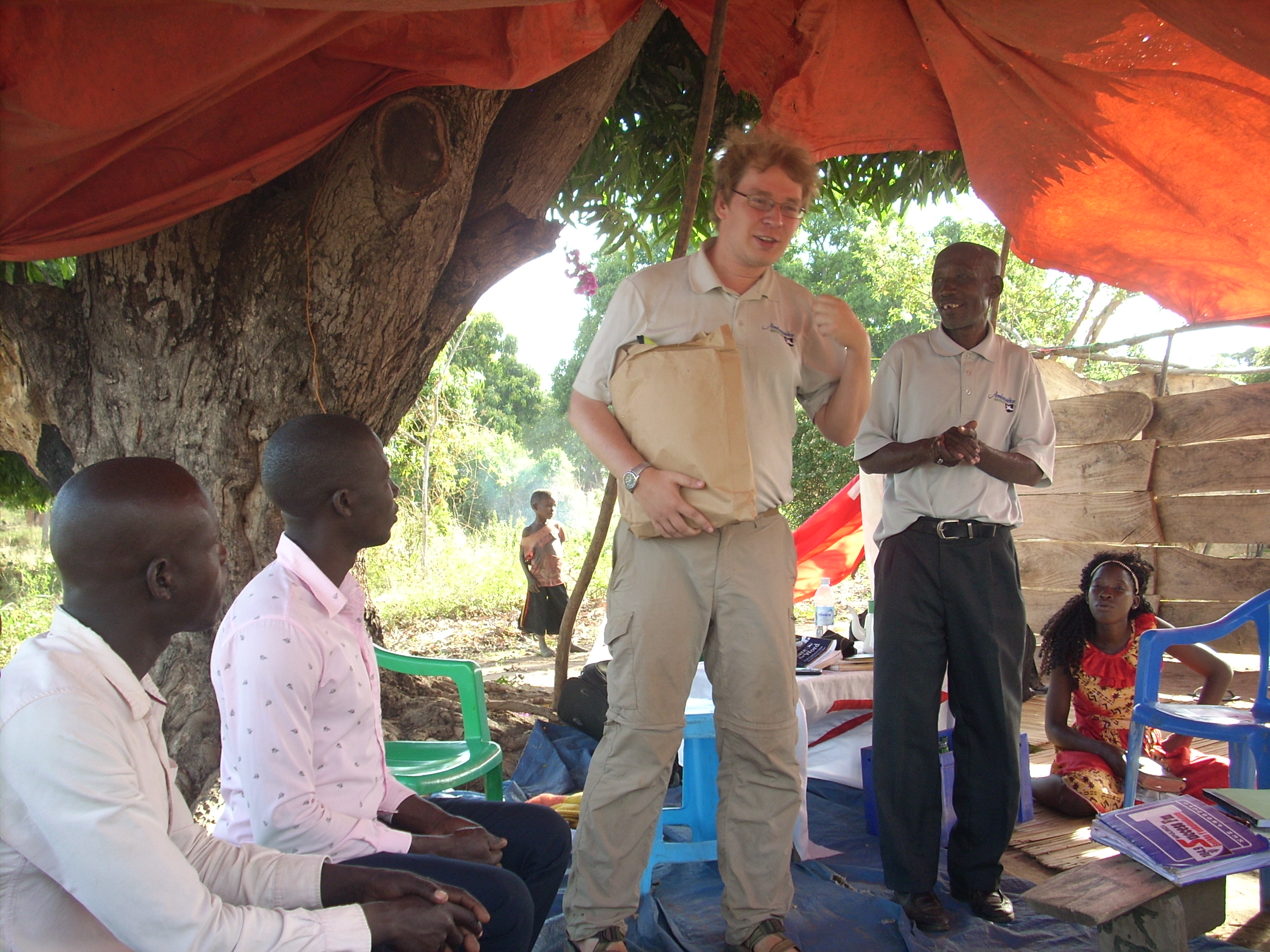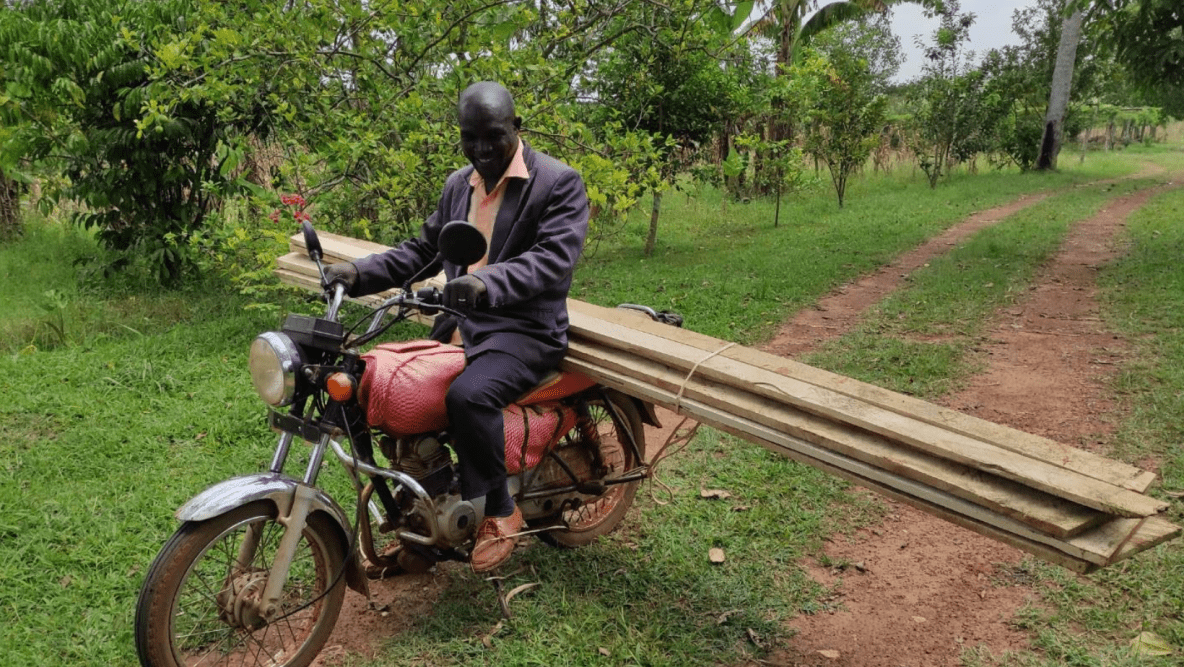Motorbikes for Uganda
Throughout Uganda’s Ambassador Institute zones, classes are held in churches, under trees, and in homes. Beginning with the scripture passage, the teacher then will lead discussions on the meaning of the biblical narrative. The whole process of the class, with each of the unique phases, takes around three hours. The commitment of the teacher to the class begins even before the Word is taught. First, the teacher has to get there.
Transportation in Uganda often requires hours. A travel day in Uganda will most likely start with a walk or bicycle ride to a motorcycle taxi. Since larger vehicles only travel on main roads, transportation by boda boda, a motorcycle taxi, moves you to where a bus will continue your journey from city to city. This trip from village to city to village requires time and is quite expensive.
The way that an Ambassador Institute class is set up, the biggest challenge is moving teachers from one location to another. Some classes are within walking or biking distance. However, with the growth of the ministry, the geographical distance of the classes expanded to the point where teachers were traveling for half the day to reach the class. There are ten Ambassador Institute zones in total, three of which require longer transportation. Zones like Kamuli, which has 12 classes currently, have a large area to cover for the teachers. Owing a motorbike makes a huge difference.
In 2022, the AFLC missionaries in Uganda presented a special project in order to raise funds for motorcycles for the use of teachers in the Ambassador Institute. Because of generous giving and support from AFLC congregations, enough was raised to purchase seven motorbikes. Before, the ministry only had one.

Michael Rokenbrodt participates in a Ambassador Institute Class
Missionary in Uganda, Nate Jore expressed his excitement and gratitude for the amazing gift: “I'm really hopeful for some of these areas that have been interested, and we've just kind of had to say, ‘You know what, we can't make it.’ I'm hopeful that some of those areas will open up and become within our reach now.” As more classes are established, more individuals are interacting with Bible. Each class inspires the student to understand and live out the truths of Scripture for themselves.
Desiring to reach as many who call for a class, national leaders of Ambassador Institute faced the dilemma of having more invites than teachers. Motorcycles available for the ministry go a long way in solving that problem. Not only will more teachers be able to travel with less difficulty, but the ability to train new teachers increases as well. Because the ministry now owns motorbikes, the opportunity opens for teachers to bring along trainees to the class for hands-on experience.
The impact of the word of God in the lives of those who have studied it is evident. Many who go through an Ambassador Institute class desire to become teachers themselves. Having a mentor teacher bring along a trainee allows for one-on-one discipleship. “Ideally, everyone who has been taught and wants to become a teacher then becomes mentored by their teacher,” Nate explained, “And so there's a period of learning how to teach when you're under the wing of someone. Typically, once the student has been taught the same two-year program again, they have gone through it as a teacher then the second time then going to become a senior teacher.”
The national leadership also desires to consider ways for this gift of motorcycles to be self-sustainable. With the need for capital to cover fuel and maintenance costs, a couple of the motorbikes will be put into business, raising funds for teachers using the rest for ministry. “With a motorcycle, the cost comes way down, and the ease of travel is so much more,” Nate said, “You’re not waiting for the taxi to fill out or for it to break down on the way. Being able to transport yourself definitely helps.” With gratitude, both missionaries and nationals in Uganda are excited to see how God will continue to open opportunities for the truth of Scripture to be taught in their communities.
- Madison Greven, Communications Coordinator for AFLC World Missions

